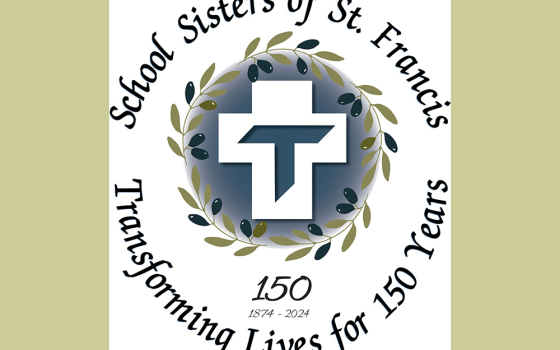CHICAGO -- A garden is a place of growth and rebirth, and the Healing Garden of the Archdiocese of Chicago is intended to offer just that to survivors of clerical sexual abuse, their families and loved ones, and the wider church.
The garden, dedicated June 9 after an emotional prayer service at Holy Family Church, was the brainchild of Michael Hoffman, a survivor of sex abuse and chair of its planning committee.
It stands as a permanent testimony not only to the abuse that happened, but also to the efforts at reconciliation between abuse survivors and the church.
In his homily at the prayer service, the cardinal said the voices of those victimized by priest abusers had too often been missing from discussions of the sexual abuse crisis.
"The garden is to be a permanent voice, not only in its plaques, but also in its presence year after year. It is also a permanent apology in its plaques and in its presence year after year, so that the apology that has been voiced in private and in public since 2002 will be permanently heard here," Chicago Cardinal Francis E. George said, referring to the year the abuse scandal broke.
"And it is also a permanent commitment on the part of this local church, the Archdiocese of Chicago, to continue and to intensify the efforts to reach in a healing way those victims who want to survive," he said.
The garden is tucked into an area just west of Holy Family Church and features more than 25 kinds of plants, trees and flowers arranged around a statue of the Holy Family donated by the Sisters of the Holy Family of Nazareth.
Plaques along its pathways feature quotes from Cardinal George and the U.S. Conference of Catholic Bishops' "Charter for the Protection of Children and Young People."
Hoffman, who said he spent some time sitting quietly in the garden the day following the dedication, said the archdiocese responded well when he came forward and reported abuse that had happened to him decades earlier. He wrote a letter in appreciation of the staff of the Office of Assistance Ministry, and shortly after that was invited to meet with the cardinal.
"All that went as good as could be expected," Hoffman said. "But there was that little emptiness inside me."
After talking with the cardinal, the idea of a garden where victims, survivors and anyone else could sit and reflect took shape.
The process of developing the garden, and working as an equal with other survivors, staff from the Office of Assistance Ministry and two priests -- Father Jeremiah Boland, administrator at Holy Family Parish, and Father Larry Dowling, pastor of St. Agatha Parish -- in itself helped fill that emptiness, Hoffman said.
He also credited Cardinal George with working hard and taking a leadership role on the issue.
"I hope other abuse survivors can be helped as well," he told the Catholic New World, Chicago's archdiocesan newspaper. "I don't think I'm special. At least in this case, for this survivor, many, many good things have happened."
Plans for the garden started in 2008, with much of the time devoted to finding a site. Several donors stepped forward to help fund the project, including the family of attorney James Serritella, who has provided for the perpetual care of the garden in the name of his late wife, Ruby.
Asked if he thinks the presence of the garden will make a difference, committee member Vince Sperduto said, "I hope so. I really hope so. I think it's a beautiful idea. It definitely can be an opportunity to reflect."
Sperduto spoke briefly before the prayer service, saying that he had carried the secret of his abuse for more than 30 years before coming forward.
"The real power is in knowing and sharing the truth," he said. "This power is a freedom that defines us and lets us go free."
He acknowledged that not everyone was impressed with the idea of the garden.
"There are those who thought the garden was a beautiful gesture," he said. "There are those who thought the garden was too little, too late."
Still, he said, "This moment is historic. It is a defining moment, a defining moment for the church, its clergy, its laity, and victims and survivors."



